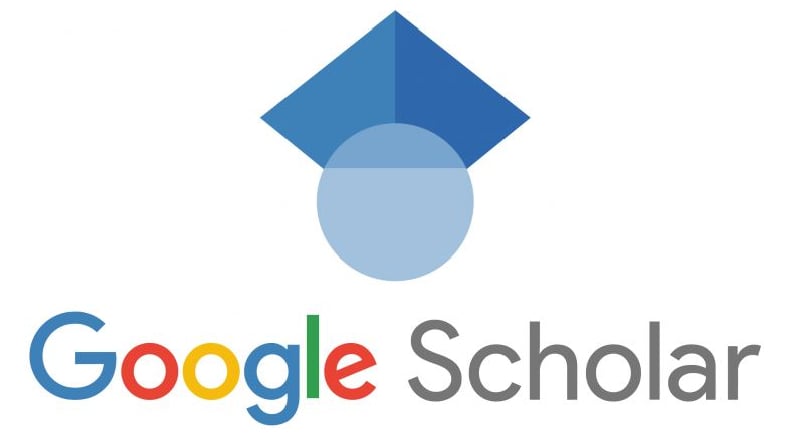Teachers’ Personal Competence and Students’ Learning Motivation in Study English on Luring Learning Model During Pandemic Covid-19: A Correlational Study
Keywords:
Personal Competence, Learning Motivation, Luring Learning, English StudyAbstract
This study aims to determine the correlation between the teachers’ personal competence and students’ learning motivation. This research employs a quantitative, correlational method. The study's population comprised all students from Madrasah Aliyah Pancasila Bengkulu, with a total sample size of 66 students from 3 classes. The research and calculation results indicate that the personal competence of the teachers at MA Pancasila Bengkulu meets the "good" criteria, with a frequency of 57 and a percentage of 86.36%. At MA Pancasila Bengkulu, students' learning motivation falls into the "medium" category, with a frequency of 36 and a percentage of 54.55%. Researchers used a two-variable correlation test to find a link between teachers' personal competence and students' motivation to learn. The Pearson Correlation coefficient was (+) 0.354, which is 35.4%, and the coefficient of determination (r²) was (0.354) ²=0.125, which is 12.5%. This means that the teachers’ personal competence variable has an effect of 12.5% on students' learning motivation.
Downloads
References
Ajizi, D. (2020). Hubungan Kompetensi Kepribadian Guru Terhadap Motivasi Belajar Ilmu Pengetahuan Sosial. Jurnal Ekopendia: Jurnal Ekonomi Dan Pendidikan, 5(2), 86–90.
Andriani, D., Sarmidin, & Iswandhiarti, W. (2019). Hubungan Kompetensi Kepribadian Guru Dengan Motivasi Belajar Siswa Kelas VIII Pada Mata Pelajaran Fiqih Di MTs Ponpes Nurul Islam Kampung Baru Toar. JOM FTK UNIKS, 1(1).
Ashrafuzzaman, M., Ahmed, I., & Begum, M. (2021). Learning English language through literature: Insights from a survey at university level in Bangladesh. Journal of Language and Linguistic Studies, 17(2), 1190-1209
Astari, A. R. N., Khairiah, K., & Mindani, M. (2022). Peran Manajemen Sumber Daya Manusia Dalam Proses Implementasi Kompetensi Pedagogik Dosen Pada Pembelajaran Tatap Muka Terbatas Di Fakultas Tarbiyah Dan Tadris Uin Fatmawati Sukarno Bengkulu. Annizom, 7(2), 122-129
Bosco, F. H., Nardi, M., & Mulia, B. (2022). Hubungan Kompetensi Kepribadian Guru Dengan Motivasi Belajar Siswa Di SDI Timung Tahun 2021. (JIPD) Jurnal Inovasi Pendidikan Dasar, 6(1), 61–66.
Cohen, L., Manion, L., & Morrison, K. (2002). Research Methods in Education. London: Routledge.
Freeman, D. (2010). Doing teacher research: From inquiry to understanding. Boston: Heinle & Heinle.
Han, Y. (2022). Exploring University Teachers’ Instructional Competencies Model Based on Exploratory Factor Analysis in Guizhou, China. Rangsit Journal of Educational Studies, 9(1), 30-41.
Hakim, M. A. R., Serasi, R., Revola, Y., Adnan, N. I., & Astari, A. R. N. (2023). The Reconstruction of Blended Learning Teaching Model for Full Online Learning System: A Study on English Education Department in Islamic Universities in Indonesia. International Journal of Learning, Teaching and Educational Research, 22(4), 1–20. https://doi.org/10.26803/IJLTER.22.4.1
Hakim, M. A. R., Susanti, T. N., Asiyah, A., & Abidin, M. J. Z. (2020). The utilization of picture and picture strategy: An effective way to improve EFL students’ writing ability in Madrasah Tsanawiyah. Madania: Jurnal Kajian Keislaman, 24(1), 31-38
Haryanto, T., Sirajuddin, M., & Khoiri, Q. (2019). Peran Guru PAI di Era Globalisasi Dalam Membina Akhlak Siswa. Annizom, 4(2). http://dx.doi.org/10.29300/nz.v4i2.2089
Istiyono, E., Kartowagiran, B., Retnawati, H., Cahyo Adi Kistoro, H., & Putranta, H. (2021). Effective Teachers' Personality in Strengthening Character Education. International Journal of Evaluation and Research in Education, 10(2), 512-521
Lestari, K. E., & Yudhanegara, M. R. (2015). Penelitian Pendidikan Matematika. Bandung: PT Refika Aditama.
Magdalena, I., Fajriyati Islami, N., Rasid, E. A., & Diasty, N. T. (2020). Tiga Ranah Taksonomi Bloom dalam Pendidikan. Jurnal Edukasi Dan Sains, 2(1), 132–139.
Phan, T. N. T., Van Ho, D., & Nguyen, T. H. L. (2022). Improving Non-Majored Freshmen's Speaking Fluency in the E-learning Environment through the MS-Teams. International Journal of TESOL & Education, 2(1), 251-271
Rahmanita, U., Marhayati, N., & Alimni, A. (2023). MENJADI CALON GURU PAUD YANG PROFESIONAL MELALUI PENDEKATAN KESEJAHTERAAN PSIKOLOGIS. INSAN CENDEKIA: Jurnal Studi Islam, Sosial dan Pendidikan, 2(1), 27-36
Rochman, C., & Gunawan, H. (2017). Pengembangan Kompetensi Kepribadian Guru. Bandung: Penerbit Nuansa Cendikia.
Saputra, A., Hakim, M. A. R., Kurniawan, Y. S., Astari, A. R. N., & Rahmanita, U. (2022). Penggunaan Model ASSURE Dalam Pengembangan Video Animasi Pengajaran Bahasa Inggris 2D Berbasis Studi Islam untuk Siswa Raudhatul Athfal. Jurnal Ilmiah Potensia, 7(1), 23-34
Tambak, S., Hamzah, H., Sukenti, D., & Sabdin, M. (2021). Internalization of Islamic Values in Developing Students' Actual Morals. JPI (Jurnal Pendidikan Indonesia), 10(4), 697-709
Tien, T. B., & Ngoc, N. T. M. (2022). EFL Student Learning Motivation: A Study of Classroom-Specific Factors. International Journal of English Language and Literature Studies, 11(2), 71-84
Downloads
Published
How to Cite
Issue
Section
License
Copyright (c) 2024 M. Arif Rahman Hakim, Vira Sulastri, Andriadi, Ade Riska Nur Astari, Mahmood Rahimi

This work is licensed under a Creative Commons Attribution 4.0 International License.






